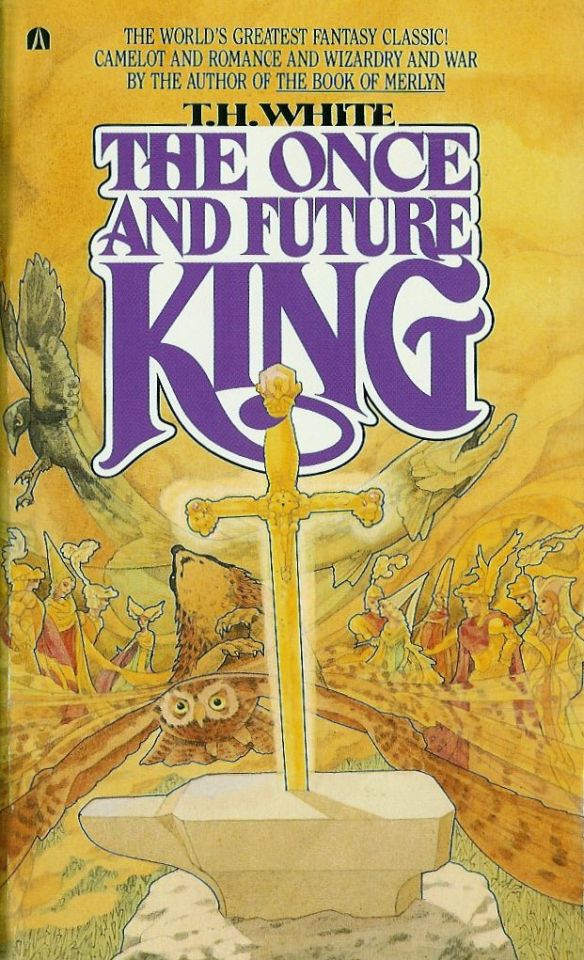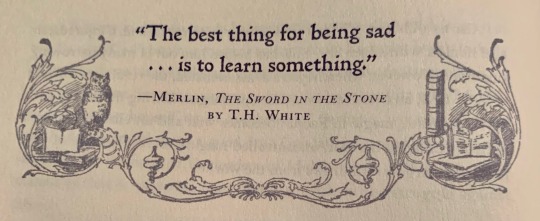#T.H.
Text
the hottest thing a hero can do is be completely doomed from the start & know it & keep going <3
53K notes
·
View notes
Text

93 notes
·
View notes
Text
Morgause' Innocence
I once said in the tags of one of my reblogs that Morgause needs to be blameless in the conception of Mordred because of Lancelot and I felt I need to clarify:
Morgause must be fundamentally innocent any wrongdoing regarding the incest with her brother, so that Arthur alone is responsible for Mordred's existence - The Fall of Camelot must be Arthur's responsibility in some capacity.
This is because one of Arthur's fundamental pillars of his narrative: King Arthur is a divinely chosen ruler. The whole of point of "the Sword of the Stone" is to physically prove to both the in-story characters, and to the Medieval readers, that Arthur has the backing of God himself. Therefore, for narrative purposes, Arthur's sovereignty and properity as a ruler is because of God's Favor and anything bad that happens to Arthur and his Kingdom, has to have some measure of "Arthur must have broken his relationship with God somehow" (This is why during the Galehaut War arc, where Arthur is losing, he consults with a wise man to confess his sins, in order to reestablish his rapport and standing with God)
The problem that arises with Lancelot's inclusion into "the Fall Narrative" - that is, the collapse of Arthur's reign - is that the "Exposure of Lancelot and Guinevere's Affair" negates and replaces the Conquest arc, where Arthur engages in the moral grey zone of conquering all of Europe, thus at least providing at least a passable rationale for why Arthur lost favor with God.
With "the Affair Narrative", Arthur is innocent overall and totally in the right to defeat Lancelot and win. With all the bias and favoritism Lancelot gets from the French writers, having Lancelot lose would not only be humiliating but also defeats the whole purpose this version of The Fall was written in the first place - the real reason Lancelot is even part of this story: to enshrine him as an unquestionable element of Arthurian history.
So, what did the French Writers do? Simple: they retcon Mordred from nephew to a bastard born of incest (perhaps inspired by certain Charlemagne stories, where Roland is secretly his bastard son).
This is their out, their clever little plot device: having Arthur commit such an abominable act - even if unwittingly - removes whatever favorable ties he has to God, and thus, Arthur has his kingdom collapse from right under him while he's fighting Lancelot.
Which ultimately brings us back to Morgause. Making Morgause evil defeats the whole point why incest!Mordred was introduced in the first place. Evil!Morgause absolves Arthur of wrongdoing.
And if Arthur's squeaky clean, then he can't Fall and God would prevent any negative narrative consequences from occuring to Arthur.
Lancelot would lose (hah!), Camelot/Logres would be perfectly fine and Arthur would move on with his life.
This is why Tennyson's and T.H. White's narratives never made sense to me: Why is Arthur being punished for the actions of others? It makes God look incompetent in punishing those actually responsible and the Sword in the Stone/Excalibur of the Lake end up looking like pointless gestures.
(It's worse in Tennyson's because he's trying to portray Arthur as a semidivine figure unrelated to Uther) (Ughh)
Their stories feel like they ignore God as an active force in Arthur's royal life and in the lives of others. *Points to the Post-Vulgates' version of the Mayday Massacre, where God protects all the infants - They SURVIVED, unlike Malory's*
#my thoughts#off my chest#reblogs#arthuriana#king arthur#sir mordred#morgause#sir lancelot#t.h. white#alfred tennyson#once and future king#idylls of the king
30 notes
·
View notes
Text
August 2023 reading
Books:
Langston Hughes, Selected Poems
T. H. White, The Sword In The Stone
T. H. White, The Witch In The Woods
T. H. White, The Ill-Made Knight
T. H. White, The Candle In The Wind
Articles:
Lisa Borst, Ari M. Brostoff, Cecilia Corrigan, Jon Dieringer, A. S. Hamrah, Arielle Isack, Mark Krotov, Jasmine Sanders, Christine Smallwood, Who Was Barbie?
Lev Grossman, The gay Nabokov
Yasha Levine, Immigrants as a Weapon: Global Nationalism and American Power
Sophie Lewis, Cthulhu plays no role for me
Gail Omvedt, The doubly marginalised
John Semley, Oppenheimer and the Dharma of Death
Bassam Sidiki, Severances: Memory as Disability in Late Capitalism
towardrecomp, Fidelidad En La Tormenta: Part 1
Eyal Weizman, The Art of War: Deleuze, Guattari, Debord and the Israeli Defense Force
Short stories:
Tamsyn Muir, Chew
Tamsyn Muir, The Unwanted Guest
Rebecca Fraimow, Further Arguments In Support Of Yudah Cohen's Proposal To Bluma Zilberman
Rebecca Fraimow, Gitl Schneiderman Learns To Live With Her In-Laws
92 notes
·
View notes
Text
Made this as a reminder, gonna finish it later

43 notes
·
View notes
Text

Facts!
#tom hiddleston#i❤️t.h.#tomhiddleston#thlover94#crimson peak#thomas sharpe#sir thomas sharpe#lucille sharpe
468 notes
·
View notes
Text

I mean, the black-and-white stuff was running backward, but it hardly mattered to the story.
Merlin [Explained]
Transcript Under the Cut
[Cueball and Megan standing by a train on a platform.]
Megan: I'm bad at goodbyes. At some level I never think they're for real.
Cueball: They make me think of T. H. White's Merlin.
[They are still standing at the edge of the platform, but the train is no longer in the frame.]
Megan: Oh?
Cueball: He lived backwards, remembering the future and not the past. To him, final goodbyes meant nothing, while first hellos were tearful and bittersweet.
[Zooming out, the rail closest to the platform becomes visible.]
Megan: Huh - so over the years he'd forget all his friends.
Megan: Must've been lonely.
Cueball: Yeah. He ended up just sitting around at home watching DVDs all day. The best was the time he rented 'Memento'...
[Merlin with pointy hat and long white beard is sitting in a couch with the remote, watching TV which emits light and is clearly hooked up to a device (a DVD player).]
Merlin: Well, that was straightforward.
22 notes
·
View notes
Text
i wonder if i have a hyperfixation on tally hall and will wood?
my gallery:

(and yes i do ask myself this question every day even though the answer is blatantly obvious)
#devilish rambles#tally hall#will wood#all the t.h ones are from the t.h.i.s skit with the gun duel#and the w.w are from the love me normally music video
10 notes
·
View notes
Text

24 notes
·
View notes
Text

jaime
#everybody go read t.h white’s once and future king. lancelot is criston is arthur is jaime thanks#guava.txt#jaime lannister#comparative tag
21 notes
·
View notes
Quote
It is the mother's not the lover's lust that rots the mind. It is that which condemns the tragic character to his walking death. It is Jocasta, not Juliet, who dwells in the inner chamber. It is is Gertrude, not the silly Ophelia, who sends Hamlet to his madness. The heart of tragedy does not lie in stealing or taking away. Any feather-pated girl can steal a heart. It lies in giving, in putting on, in adding, in smothering without the pillows. Desdemona robbed of life or honour is nothing to a Mordred, robbed of himself--his soul stolen, overlaid, wizened, while the mother-character lives in triumph, superfluously and with stifling love endowed on him, seemingly innocent of ill-intention. Mordred was the only son of Orkney who never married. He, while his brothers fled to England, was the one who stayed alone with her for twenty years--her living larder. Now that she was dead, he had become her grave. She existed in him like the vampire.
T.H. White, The Candle in the Wind
190 notes
·
View notes
Text

26 notes
·
View notes
Note
More about the Lost City of Atlantica, please?
Thank you for asking about this one! This is...Hermiod's second novel in the Garden of Thorns trilogy. It will be terrible. T.H. Asgard strikes again! (and Novak weeps). The premise? Pirate warrior Shephardson and Sir Roderick get tantalizing hints of the whereabouts of the lost city of Atlantica, and naturally, they must depart, post-haste. But is the information genuine? Who sent it? And if the Garden of Thorns is in dry-dock, how ever will they get there??
This one is about 1200 words right now and I will definitely finish it (I hope I haven't just jinxed myself here).
A snippet:
Pirate warrior Shephardson paced the deck of the Garden of Thorns. The ship was in dry-dock, undergoing some much needed repairs after a series of insane – yet ultimately triumphant – battles against the seafaring Genii peoples. Yes, they had been triumphant, but the cost had been high. Specifically, the cost was the loss of the thrill of piracy, however temporary.
Shephardson was not a man who lent himself to idleness. He needed action.
"For the love of all the sea's gods, which of course are quaint and meaningless human affectations, Shephardson," Sir Roderick said, "you're making me insane with your pacing. And if you think I'm going to let you ram me with your swizzlestick as a distraction again, you're sorely mistaken."
Shephardson smirked. "I think you're the one who's sore, Roderick."
Barely looking up from his notebook – Roderick was always so focussed on science when he wasn't focussed on having Shephardson's iron package in his mouth – Roderick rolled his eyes. "Calm yourself, Shephardson. Anyway, I have a missive from Lady Elisabeta that I think you might find interesting. It appears that she and Calderon –
Shephardson grumbled at the name of the hard-hocked captain that he had a long-standing super beef with.
"—have received a mysterious note purporting to contain hints location of the ancient and lost city of Altantica. Of course, they are too busy plowing each other's passages to act on it, so they've sent it to me."
Shephardson found himself momentarily distracted from staring at Roderick's plump human lips. "Atlantica?" The place was rumoured to be a trove of treasures and riches, and that made him…really hot. And he did not mean temperature-wise, as, like all humans, he maintained a temperature of approximately 37.5 degrees at all times.
#wip game#T.H. Asgard#there will definitely be references to the majestic elk in this one and also terrible euphemisms will abound#a swashbuckling adventure of appalling euphemisms
23 notes
·
View notes
Text
Architects have tended to treat tradition as a catalogue of elements. You can design any modern building to be traditional by throwing a few traditional elements on it, even if its plot and setbacks and road widths are all modern — like a man who drives to his office job and wears a suit getting a tribal tattoo. But it is the cultural impacts of planning that are more important: territoriality, a sense of public ownership and belonging, social interaction, local control. In her analysis of how modern masterplanning affected Kuwaiti culture and politics, Farah Al-Nakib notes that 19th and 20th century European explorers and sailors who visited Kuwait prior to the oil boom unanimously commented on its cleanliness. Each neighborhood was responsible for its own cleanliness.
—T.H. Shalaby, from "Atom Bombs and Earthquakes: Changing Arabian Culture Via Architecture," in the Markaz Review
9 notes
·
View notes
Text
Happy Birthday to the one man that makes my panties drop and my knees weak. 🥰🥵🥳

#tom hiddleston#i❤️t.h.#tomhiddleston#thlover94#happy birthday#loki#thomas sharpe#hank williams#jonathan pine#the night manager#isawthelight#the deep blue sea#crimson peak#loki series#the avengers#marvel mcu#mcu loki
17 notes
·
View notes
Text
“He watched out at the stars in a kind of trance. Soon it would be the summer again, when he could sleep on the battlements and watch these stars hovering as close as moths above his face—and, in the Milky Way at least, with something of the mothy pollen. They would be at the same time so distant that unutterable thoughts of space and eternity would baffle themselves in his sighing breast, and he would imagine to himself how he was falling upward higher and higher among them, never reaching, never ending, leaving and losing everything in the tranquil speed of space.”
— The Once and Future King
14 notes
·
View notes